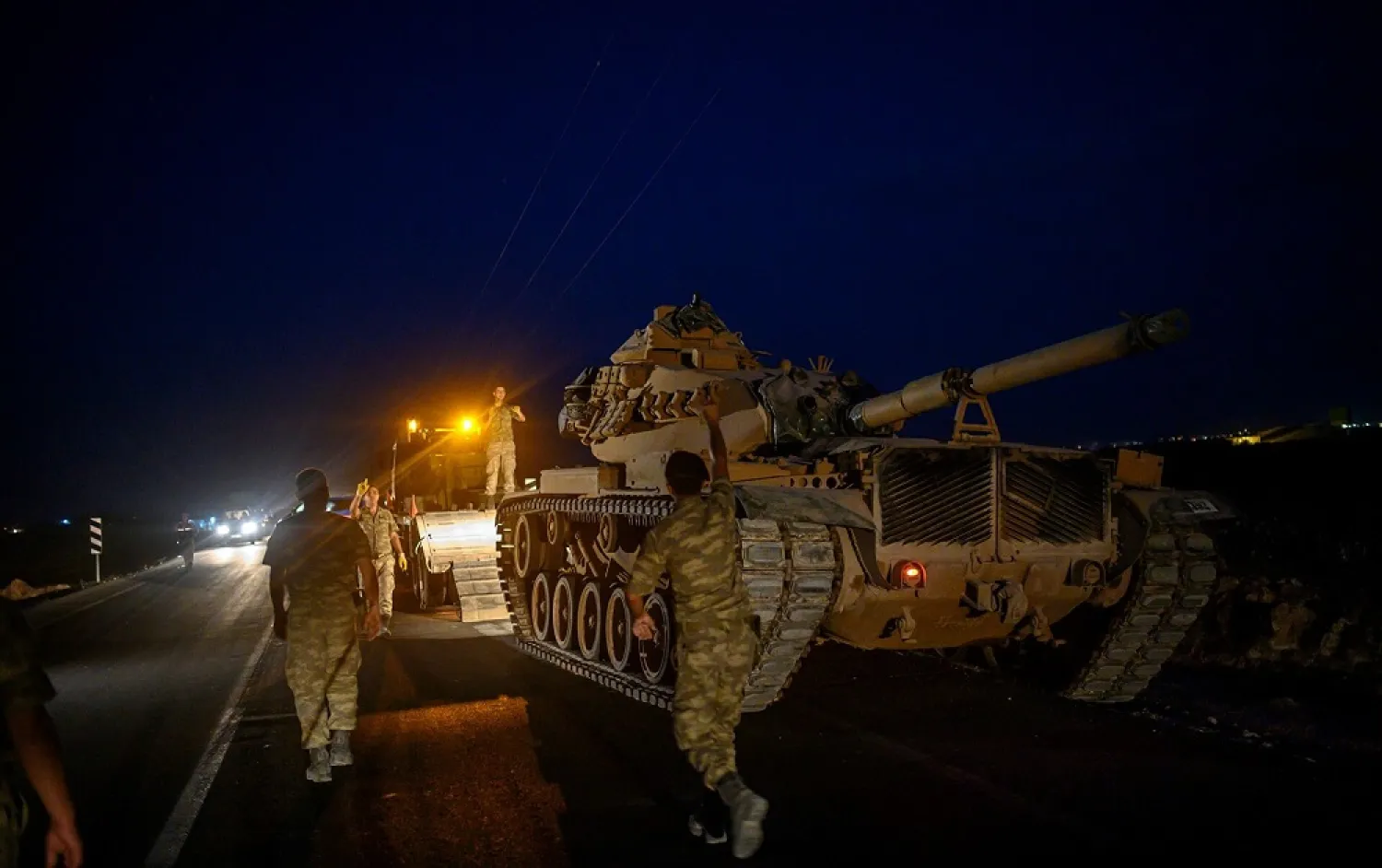Regime forces struck on Monday positions of the Turkish army and allied Syrian factions in the northern Hasakah countryside that falls within the areas of Ankara’s Operation Peace Spring.
The strike took place after the Turkish forces and Syrian factions attacked a Russian fighter helicopter that had flown over the village of al-Dardara in Hasakah. The aircraft, which was flying at low altitude, managed to avoid being hit.
The attack coincided with intense missile strikes carried out by the opposition factions deployed in areas where Turkey had carried out the Operation Peace Spring against Kurdish forces.
The regime forces consequently launched missile attacks against the positions of the Turkish army and loyalist factions in al-Qasimiyah and al-Dardara and other villages in the Tal Tamr countryside.
According to a senior military source, the command of the Russian forces ordered the regime forces to carry out the attack.
This incident is the first since Turkey launched its Operation Peace Spring in October 2019.
Commander of the Tal Tamr Military Council said the countryside has witnessed frequent attacks since mid-August.
Meanwhile, Russian forces have expanded their base in the vicinity of Qamishli Airport and began constructing an airstrip for warplanes and a coordination center in the old French barracks square.









